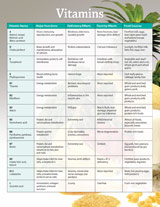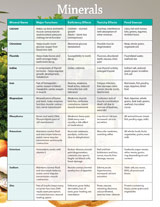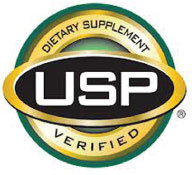Vitamins & Dietary Supplements
What Every Consumer Should Know
.jpg)
Ever wonder where “Limey,” a derogatory term for an Englishman, came from? Well, in the 18th century, when British sailors were at sea for months on end, they would develop a gum disease known as scurvy. This caused their gums to bleed and their teeth to fall out — until they started habitually eating limes, which contain vitamin C.
When you hear the word “vitamin,” what comes to mind — a pill that you take every day to promote health? That’s how many of us are used to thinking of vitamins, which is why the vitamin and dietary supplement industry takes in $25 billion annually.
Do you need vitamins? Absolutely. But do you need to take vitamins? That’s a more complex question.
The word “vitamin” comes from the Latin word “vita,” meaning “life,” and “amine,” a group of organic compounds. While not all vitamins are amines as once thought, they are indeed organic compounds essential to life. They control a variety of processes in the body and help facilitate important reactions in and between cells. For example, vitamin C helps the body convert food into energy, repair its own tissues (like collagen, a protein building block of gum and other tissues), and synthesize chemicals known as neurotransmitters that are critical to brain function. Vitamin deficiencies, as demonstrated by scurvy, can adversely affect oral as well as general health.
There are 13 vitamins, divided into two categories: fat-soluble and water-soluble. The four fat-soluble vitamins (A, D, E and K) are stored in the liver and fat tissue and used slowly. For this reason, large doses of fat-soluble vitamins can be toxic. Water-soluble vitamins (C and the eight B vitamins: biotin, folate, niacin, pantothenic acid, riboflavin, thiamin, vitamin B6, and vitamin B12) are used quickly and, for most, any excess is excreted. Because they are needed in very small quantities, vitamins are also referred to as micronutrients.
Vitamins A, and C, found in all fruits and vegetables, and E, found in vegetable oils, are also antioxidants. This means they protect our cells (and DNA) from damage during metabolism and exposure to toxins from the environment. This protective effect has been demonstrated by studies showing that people who eat more fruits and vegetables have a lower incidence of cancer, heart disease, and other chronic health conditions.
Is More Better?
The knowledge that antioxidants promote health often leads to an obvious assumption: that taking supplemental vitamins (and other antioxidants) of the type found in fruits and vegetables should make you healthier. Unfortunately, this has not necessarily been borne out by the evidence. While many questions have yet to be answered, it appears that the reason may relate to the fact that besides antioxidants, fruits and vegetables contain fiber along with thousands of biologically active phytochemicals that likely interact to promote health. Manufactured vitamin pills, whether they are derived from natural plant material or from petroleum products (a source of some synthetic antioxidants), do not contain all of these ingredients.
That’s not to say vitamins and other dietary supplements are of no use. For certain individuals they are helpful and necessary. These include people who purposely avoid entire food groups; pregnant and nursing women; older adults; people who avoid sun exposure, which helps the body synthesize vitamin D; and anyone who has been diagnosed with a deficiency of a particular nutrient. On the other hand, while the health benefits of taking vitamins and supplements is mixed, there has been some very concrete evidence established that taking too much of them can actually be dangerous — for some individuals more than others.

Let’s consider vitamin A, which the body makes from beta-carotene — an antioxidant plant pigment that gives orange fruits and vegetables their color. Because people with high levels of beta-carotene in their diet and in their blood have been found to have a lower risk of cancer, two large studies were conducted in which beta-carotene supplements were given to smokers and asbestos workers, the people most prone to lung cancer. Far from offering protection, the beta-carotene supplementation increased the incidence of lung cancer and death.
In fact, there is a known condition called “hypervitaminosis,” which is caused by too much supplementation — usually of vitamins A or D. Although the symptoms can be serious, individuals normally make a full recovery if they stop mega-dosing with vitamin supplements.
Vitamin E, another antioxidant, also looked promising as a safeguard against cancer and heart disease. But in 2005, a review of the research found that in 9 out of 11 major studies in which people took 400 IU or more of vitamin E from supplements alone, there was an increased risk of heart failure, gastrointestinal cancer, and dying from any cause, suggesting the more vitamin E supplements consumed, the higher the risk.
 |
 |
|
Vitamins Click to enlarge |
Minerals Click to enlarge |
Not only that, some supplements that might otherwise be safe can pose risks for people who take certain medications or who are about to have surgery. For example, St. John’s wort, used as an herbal antidepressant, is especially prone to drug interactions. It can decrease the effectiveness of prescription antidepressants, oral contraceptives and anti-HIV drugs, among other medications. Ginkgo biloba and vitamin E can increase the risk of internal bleeding in people who are taking blood thinners or non-steroidal anti-inflammatory medication such as aspirin and ibuprofen.
Be Your Own Watchdog
Keep in mind that vitamins, minerals and herbal supplements are being added to a growing number of foods, particularly fortified cereals and beverages, so that you might be getting more than you realize.
Why isn’t the average person more aware of the fact that supplements can affect the body as strongly as prescription drugs? The answer lies in the way vitamins and dietary supplements are regulated. The Food and Drug Administration (FDA) oversees both drugs and dietary supplements. But the laws governing each are very different: While drugs must be proven both safe and effective through clinical trials before they are sold to consumers, no such proof is required for dietary supplements.
 |
| When purchasing vitamins and supplements, make sure you see the actual USP seal, and not simply the letters “USP” which anyone can print on their label. |
If the FDA finds a supplement to be unsafe once it is on the market, only then can it take action. This may include issuing a warning or requiring the product to be taken off the shelves. The Federal Trade Commission (FTC), another federal agency, can take action against companies and websites that make false or deceptive statements about their products. So as you can see, federal regulation is an after-the-fact kind of thing.
Fortunately, there are several independent organizations that have stepped up to fill the regulatory gap. For example, the U.S. Pharmacopeial Convention (USP) sets standards for product quality that manufacturers can comply with voluntarily. Other organizations that verify quality are consumerlab.com and nsf.org.
Seek Advice From Those You Trust
Of course, even if you have verified the quality of the product you are buying, as you certainly should, the question remains as to the specific amounts of any given product you need — which may be different than the recommendations on the label. That’s why it’s so important to consult with your health professional or registered dietitian on the important question of whether you need any type of supplementation.
Says the Office of Dietary Supplements at the National Institutes of Health, another great resource for information on vitamins:
“Do not self-diagnose any health condition. Work with your healthcare provider to determine how best to achieve optimal health and always check with your healthcare provider before taking a supplement, especially when combining or substituting them with other foods or medicine.”
We all want good health, but unfortunately there are no shortcuts. A supplement is not a substitute for a healthy diet.



